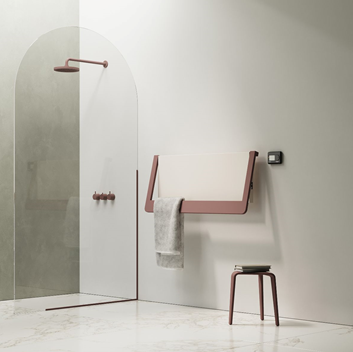Gone are the days of plain, dull radiators & towel rails. The latest modern designs feature eye-catching shapes and bold colours, with many also ticking the box of being energy efficient. With designer styles making a statement in their own right, hotel heating has never looked so good. Nick Duggan, MD at The Radiator Centre, takes us through this rapidly developing market.
Hotel bathrooms play an important part of the guest experience and are often seen as places in which to relax and unwind during a stay. Indeed, the ‘hotel bathroom-look’ is so sought after, people try to recreate it in their own homes. Whether the interior is designed to give a luxurious spa-like feel or a simpler more pared-back atmosphere, one thing that shouldn’t be overlooked is the heating. For hotel bathrooms, this will usually take the form of a heated towel rail and there is a great range on the market. From large chain hotels to smaller boutique destinations, the simple act of providing warm, fluffy towels is an easy way to make guests happy and therefore more likely to return. Depending on the size of the room, sometimes a radiator may also be needed and a simple heat calculator can help to determine whether this is necessary.
Hotel bathrooms come in all shapes and sizes and when planning the layout, finding space to dry towels is one of the key requirements. Whilst the standard ladder rail may now be considered a bit outdated and doesn’t always fit the space, modern alternatives are available in a wide array of interesting colours, styles and finishes. Horizontal designs are great for when wall space is short and can be placed in otherwise ‘dead’ spaces such as that above a bath. Curved designs are a good option for super thick fluffy towels and also give a stylish, elegant look.
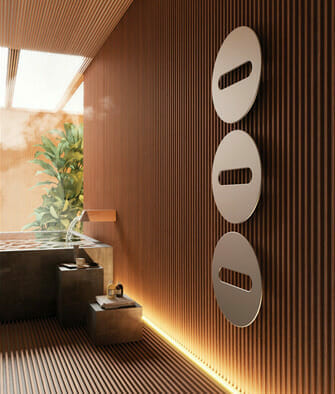
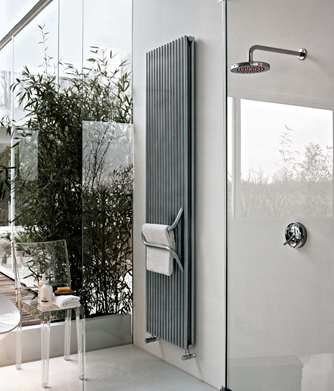
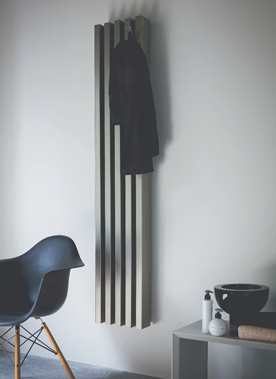
The interior design of the hotel will usually dictate the radiator or towel rail chosen and there are plenty of options to suit all styles. Traditional style towel rails can be built to take advantage of modern manufacturing methods and controls. From the most luxurious to the most basic hotel bathroom, there is something different that can be made to work. Coloured bathroom radiators give a great opportunity to continue the colour scheme chosen for the living/sleeping space. Boutique hotels have become very popular in recent years and are arguably the most individual, daring and unique with their interior decoration. With such expense and effort being put into creating the perfect look, adding a beautiful designer radiator or towel rail will give the perfect finishing touch. Many of the more artistic designs available are just as efficient as they are stylish too.
ENERGY EFFICIENCY
For many hotels, energy efficiency will be an important factor. Customers are increasingly being asked to hold on to their towels for the duration of their stay rather than get fresh ones, saving on water, electricity and detergents. This new development also means that having somewhere to dry towels efficiently is now more important than ever.
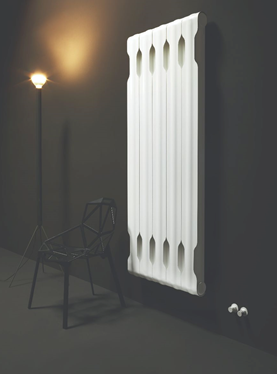
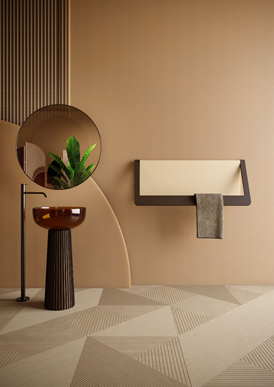
In terms of heated towel rails or radiators themselves, there are some great energy efficient models on the market. These models are more efficient because they use lower volumes of water, with some having only 10% of the water of a similar sized conventional radiator. Radiators that have less water in them require less energy to heat up and as a result, should be cheaper to run. In terms of materials, aluminium radiators generally have lower water content and faster reaction times than a steel equivalent. The designs and finishes of aluminium radiators have developed rapidly over recent years so now, besides benefitting from a more energy efficient system, you can make a great design statement as well. I would advise avoiding chrome radiators, as they do not emit heat as efficiently as coloured or matt finishes. In fact, chrome plated radiators can give out up to 20% less heat than painted options.
The output of a radiator depends on the amount of surface from which heat can dissipate from. Hence why more conventional radiators generally have convectors in the middle. Many modern designs act on this principle by building in hidden ‘fins’ and ‘grooves’ from which the heat can escape. Another thing to keep in mind is that the bigger the bars, the better the heat output. Designs which separate the towel from the radiator section are also great options, as these heat the room more effectively.
SMART TECHNOLOGY
Many of the latest designs include smart technology, making it possible for hotel owners or staff to control every aspect of it, also leading to further potential savings on energy. This technology makes it easy to control the temperature of individual rooms, meaning that if some rooms are not in use, the heating can be turned off or down. Climate change is making our weather more unpredictable, so if there’s an unexpected rise in temperature in the winter, you can schedule the heating to come on later than usual, turn down the thermostat, or turn the heating off completely.
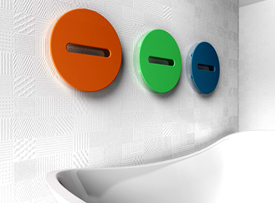
When it comes to hotel bathroom heating, we would also recommend looking at dual fuel options. Many towel radiators are also now available with an optional electric heating element, which will ensure you have warm and dry towels even when central heating is turned off in the summer.
ELECTRIC DESIGNS
For those hotels where electric radiators are needed, there is still a great range of models to choose from. These can also help with energy efficiency because of their controllability. Each radiator comes with a timer, allowing it to be set to come on at the precise time it is needed. Some electric radiators also come with smart technology, allowing them to be controlled via an app on your phone. Since 2018, all electric radiators have also been built with ‘open window’ sensors. If the sensor detects a draught from an open window or door, it will automatically switch the radiator off to prevent heat waste.

